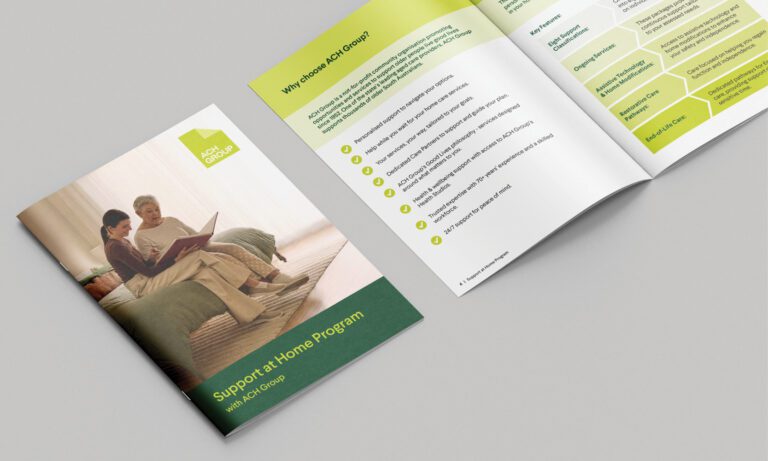Living with dementia
At ACH Group all of our services are inclusive of people with cognitive impairments including dementia, as well as dementia specific services to suit individual needs and allow for choice.
ACH Group have staff with the specialist knowledge, skills and experience that enables them to offer the right advice at the right time, no matter where someone is on their journey with dementia.
Dementia is caused by a variety of diseases and injuries that affect the brain. Dementia can affect a person’s memory, thinking, behaviour and ability to perform everyday activities.
While dementia can and does have a profound effect on a person’s daily life and that of those around them, it is possible to live well with dementia in the community, at home or in residential care.
Research tells us, the key to living well with dementia is to focus on health and wellbeing and to stay socially connected in ways that suit a person’s abilities and interests.



